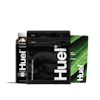All You Need to Know About Plant-Based Proteins
What they are, why they matter, and how to get more in your meals.

Protein is an essential macronutrient that helps us maintain and build our muscles, bones, and hair, and perform other essential functions such as nutrient transport and enzymes. Contrary to popular belief, dietary protein is not exclusively found in meat, fish, and eggs. Protein foods also include beans, peas, lentils nuts, seeds, and soy products. Variety is essential to a healthy dietary intake, and protein is no exception. Whether you eat meat, or follow a vegetarian or vegan diet, incorporating plant-based proteins is an essential part of a balanced diet. Much like their meat and dairy counterparts, plant proteins bring a variety of essential nutrients to the table, such as vitamins, minerals, fibre, healthy fats, and phytonutrients.
Benefits beyond the protein
Most people consuming the Western diet get the protein they need from meat, poultry, and eggs, but do not meet the recommendations for other forms of protein like seafood, nuts, legumes, seeds, and soy. The plant-based proteins increase the amount of essential nutrients in your diet, such as fats, dietary fiber, vitamins, minerals, and phytonutrients. Mixing in plant-based proteins can also help limit the amount of sodium and saturated fats (nutrients generally consumed in excess) people get from eating processed meats like deli meat or jerky.
In addition to our physical health, shifting to a more plant-based diet is good for planetary health. About half the world’s habitable land is being used for food production, the majority of which is used to raise livestock (and the feed used to support livestock). Shifting to a plant-rich diet can significantly reduce the negative environmental impact of food production on our planet.
Complete vs Incomplete Plant Proteins
There are twenty amino acids that serve as the “building blocks” of protein. Nine of these amino acids are considered to be essential, which means our body cannot make these on its own, and therefore we must obtain them through the diet. Foods that are considered “complete proteins” are defined as any food that provides all nine of the essential amino acids. Some examples of plant-based foods that are complete proteins include:
Quinoa
Soy (like tofu, tempeh, edamame)
Chia seeds
Buckwheat
Hemp seeds
Not every protein you eat has to be complete on its own- you can pair to sources of plant-based protein to achieve a complete profile of all nine amino acids. Examples of these pairings include:
Rice + Beans (in a bowl, or even as part of a burrito)
Peanut butter + Whole grain bread (a morning toast!)
Chickpeas + pistachios (in a delicious salad!)
Peas + Pasta (especially delicious paired with a creamy sauce)
Bioavailability
There is not really a “better” or “worse” when it comes to animal vs plant sources of protein. As highlighted above, different sources of protein bring different benefits to the table. Recent studies have shown that in terms of the bioavailability of the protein, animal sources have a bit higher bioavailability. This means those who follow vegan diets might need to be a bit more intentional to ensure they are meeting their protein goals by incorporating the complete proteins mentioned above and pairing incomplete plant proteins together. Thankfully, there are so many different sources of plant protein and various plant protein products that make meeting intake goals easier than ever.
How to incorporate plant proteins into your diet
If you are someone who enjoys eating meat, you can opt for a plant-based protein option to mix it up, or even pair it alongside an animal-based protein! For instance, boost the protein of your yogurt bowl with pumpkin seeds. A quarter cup of pumpkin seeds not only provides about 10g of protein, they also provide a boost of magnesium, iron, and omega fatty acids. Another great opportunity to layer in plant-based protein to your meals is to add beans, lentils, or peas to your favourite soups and chilis.
Words: Madeline Peck RDN, CDN, Huel nutrition team
Join the Huel family
Get the scoop on exclusive offers and product launches.
This site is protected by reCAPTCHA and the Google Privacy Policy and Terms of Service apply. You can unsubscribe at any time. Huel Privacy Policy.






